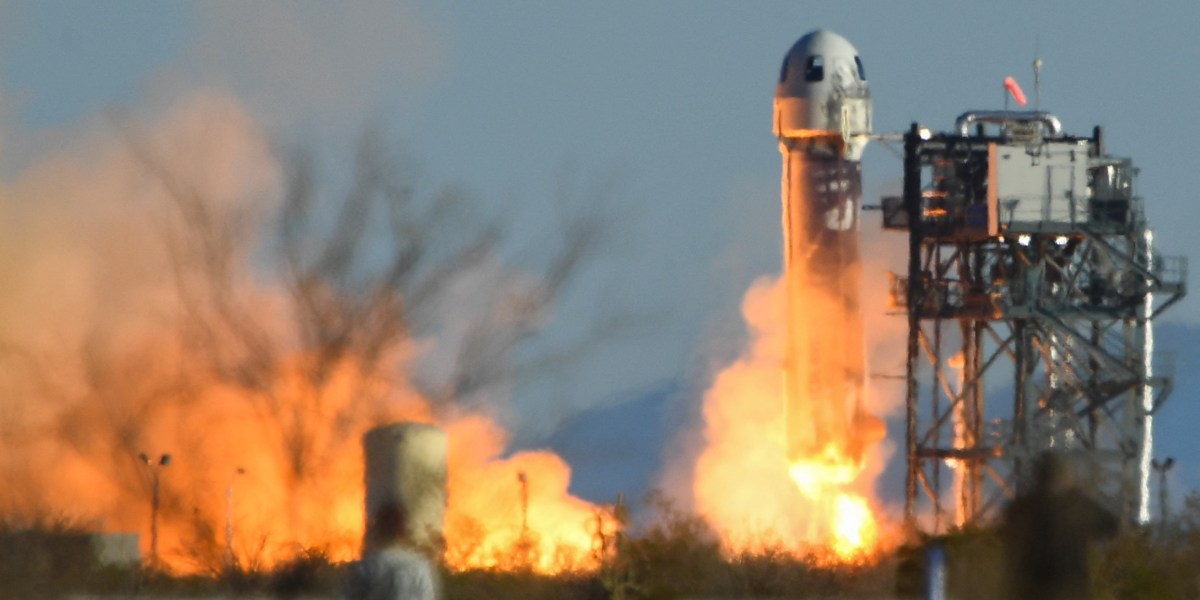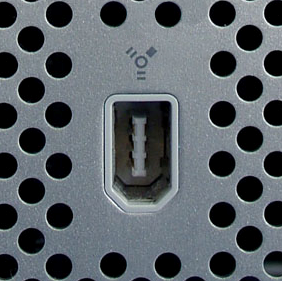Jeff Bezos’ Blue Origin rocket tests in Texas are emitting so much methane you can see it from space::So much you can see it from the ISS in space.
When burned, methane produces water and carbon dioxide, which are less harmful to the environment. The issue here is not with rocket testing, but with improper storage of methane
Always knew bezos was a cheap skeet. Can’t even properly pay his employees. So why should he make proper rockets. ¯_(ツ)_/¯
It’s embarrassing because it sounds that all blue origin had to do was burn the excess methane to mitigate the impact.
This is leaking methane
I’m sure rockets testing is a issue on its own, especially when we are facing a climate and social crisis and it’s being used for rich people entertainment or for aid authoritarian governments in shipping weapons into orbit
Results of space exploration in everyday life: https://spinoff.nasa.gov/
Return on investment: https://thehill.com/opinion/technology/3721375-how-much-does-nasa-return-to-the-american-economy/
billionaires existing should be illegal
Trickle down pollution.
If BO is being that careless with methane emissions then they are breaking laws. Report them
BO used to mean body odour and this sentence still makes sense in France
The environmental agencies are corrupt pieces of shit.
Fun notes from America’s other privately owned, publicly funded space program. Even if you think that privatization of space is a good thing (you’re wrong, it’s not, but let’s just assume for the sake of argument that it is) how do you justify the fact that the public takes on huge swaths of the development cost, then has to pay to use the service, then has to pay to clean up externalities like an ocean of methane in the atmosphere?
I would say purely “because it works”. SpaceX has received a ton of funding, for sure. But they’ve delivered incredible advancements in reusable rocketry, methalox fuel cycles, cost to orbit and much more, while SLS was literally a flying scrap pile that was late and over budget despite being reused 1980s tech.
Let’s not pretend that NASA rockets were really public work either, with most of the development and construction done by contractors like Boeing, Lockheed Martin, Aerojet Rocketdyne and more… But these old guard companies were happy to keep turning out the same old product with incremental improvements.
SpaceX could have been a tremendous failure or success with the risks they’ve taken, and we’re all lucky it turned out to be a success (so far…). It says it all when they are going to launch Orion on SLS but Starship is going to be waiting there at the moon for them. Well, if it doesn’t blow up on the pad.
The space program of every nation have always worked that way. Even the Soviets were using Rhode Schwarz made gyroscopes. The Apollo rockets were built by the private sector.
The only real difference now is the ferrying contracts.
Because public programs were somehow even more expensive for the same externalities and service.
Eating the billionaires sounds more and more attractive every day.
Eating the rich just gives you gas (and prion disease). Compost the rich.
Let’s not make dirty industrial activity clean, let’s move it off world (destroying another different planet). Because, you know, that’s apparently easier than actually solving the problem.
No, that is literally solving the problem. You can’t make it clean. What exactly would we need to protect out in space or say the moon? The space whales, or moon frogs? You’re protecting nothing but the vacuum of space and some rocks.
My oil stocks say keep it here. I won’t be alive to find out what happens. /s
Didn’t we originally think the same (“you’re protecting nothing”) when it came to the ocean, the Rain Forests, lakes, streams, the Arctic, etc? Until we learned otherwise. By that time, the profit motive was too entrenched to ever allow things to change.
By way of example, what if the moon were mined to such an extreme that it changed its orbit? Wouldn’t that impact it or the earth itself? What if the moon were no longer there at all because that suited a future trillionaire’s aim to add another billion to their bank account?
No, the environmental movement has been happening since the industrial revolution caused air pollution
https://en.wikipedia.org/wiki/Environmental_movement
Mining the moon for rocket fuel won’t affect its orbit, and I’m not sure how a trillionaire could remove the moon
Bet if Elon was in charge he’d find a way to crash it.
“wahhhh, Twitter, wahhhh”
deleted by creator
At worst it’d be a new crater and debris thrown into orbit. The very largest asteroid thrown at the moon, even like Ceres, would be a peashooter at a barge.
I must have an overactive imagination because I can think of plenty of problems that unregulated space industry could cause.
Industry requires infrastructure and support, when speaking space terms everything is way more expensive so cost cutting will be rampant on all systems. Centralized space communication hub? No, we’re gonna be bombarded with signals since maintaining the equipment on ground is cheaper (astrology sciences would suffer). Way to many objects in an orbital plane? Not their problem till eventually it becomes a catastrophic event as our own planet can become (Kessler Syndrome). More mass requires more fuel? Dump all the junk at every opportunity clogging space lanes (micro meteors and radiation will no longer be the main safety concern for travel).
I could go on and on, think about the current state of shipping and logistics. We already have events where ships were forced to sit for weeks outside of docks waiting to be unloaded (source). The space faring ships will only increase in size. What do you do with the useless containers they ship the contents back to earth with? The cost would be too high for re-usability getting it back into space. What about the workers who are at an unregulated site and their conditions?
I agree it’s a conundrum of how do we advance when advancement causes destruction. It’s something I’ve wrestled with when considering the Fermi paradox. Either you live harmoniously with the planet and die when it’s environment changes, or you use that sucker up and get out of dodge before the next mass extinction takes you and nearly all of the living creatures out. I’m hoping in the future we meet some neighbors that can show a middle ground works well to persuade out current trajectory.
astrology sciences
That’s a contradiction in terms, no?
lmao, I didn’t catch that so thank you. I was in a stupor when I wrote that and meant astronomy lol. I added the sciences in because there’s a plethora of different fields that require clear observations and wasn’t sure what the best terminology was to include all of the possibilities. Instead I completely missed the mark with the wrong base word.
What a mixup to make! 😂
But yeah, I see what you’re getting at
I don’t think you quite grasp how enormously big space is.
I agree, it’s difficult for anyone to truly grasp how big space is. The problem is we’re not interested in 99.9999999…% of space, we’re interested in key points. You can drop one grain of bright pink sand on a mountain and no one would care or notice. If you only concentrate that on one path up the mountain and back down, eventually the infinite number of people traversing/dropping on that path will be noticeable and have an effect.
We really need to hold corporations accountable for solar radiation. Our star spits out so much radiation that it can cause a significant increase in skin cancers. This is a proven fact that we’ve known for a long time, yet no one does anything about it. Why? Well, why don’t you look at who the sun really benefits. Corporations, that’s who. Many of our inventions were created to protect us from the sun, reduce its effects or power the things that do. They profit off our misery while neglecting to solve the base issue: that the sun is a dirty fusion ball that threatens our well-being. Take a stand against dirty solar and let’s hold big agriculture, big solar, big a/c and big beach accountable for their role in climate change and proliferation of skin cancers! We can do this together, but only if we stand together and force them to switch to clean solar energy today!
Edit: don’t even get me started on that ring of trash around Saturn. Seriously, stop allowing corpos to profit off the pollution of our stellar environment.
Edit 2: yo, this was supposed to be a joke about how I think complaining about pollution on the Moon or whatever is silly. Maybe it’s not a good one, but yeah.
Honestly? You can’t collapse the moon’s ecosystem because the moon doesn’t have an ecosystem.
Yeah, the moon doesn’t have an ecosystem.
It’s important to note that we know for sure that the moon has no ecosystem, because every ecosystem is based on plants/solar irradiation as a source for energy, and therefore it would have to be on the surface.
There’s no “hidden” ecosystems or underground oceans with life in them.
I never said anything specific to an eco system
Remember when William Shatner was nearly moved to tears by the beauty of the world after his experience on Bezos’s rocket? And then Bezos talked about moving production into space.
Remember when William Shatner was nearly moved to tears
Then Bezos proceeded to spray champagne over him while he was trying to make a quick speech.
Imagine being the biggest asshole on a stage with William Shatner.
Well, just when I manage to stop worrying about climate change so much…
The hottest summer in recorded history is when you decide to stop worrying about climate change?
Yo dawg we heard you like greenhouse gases.
It sounds like they should be more careful with how they store their methane.
I do want to stress though, that I think that space technology is the single most important subject we can focus on, except maybe medical. If extravagant trips for billionaire’s can fund a bunch of it for now, that’s fine by me. Only really means that governments should be doing more.
Every day, the sun emits roughly a billion times more energy than the earth uses. That is, all our technology, all our food, all animals, all plants and all the energy needed to create all weather combined consumes about one billionth of the sun’s output. The rest is sent into deep space.
This waste of the sun’s energy is so vast, that we as a species absolutely want to start capturing more of it as soon as possible, rather than squabbling in the mud for fractions of the 0.0000001% of the sun’s output the earth uses today. Obviously we need our planet to survive until then, but getting proper infrastructure in orbit and beyond is such a massive game changer.
but getting proper infrastructure in orbit and beyond
Ah, there is the catch. Don’t forget how you plan on getting that power safely back to earth.
True. Doing that wouldn’t be easy right now.
However, it doesn’t necessarily need to get back to Earth. If we have power up in space, it gets much easier to run mining operations on asteroids, the moon etc. As soon as we have both power and minerals, we can also start putting factories in orbit instead of on Earth, reducing energy need down here.
The stuff those factories produce can be dropped down to Earth, OR we use that stuff in space to build even more infrastructure. In fact, at this point it becomes feasible to build really nice space stations that people can go live on if they want. Eventually, we’d even have the production capacity to build O’Neill Cylinders.
Now we can just continue building and mining in space, while developing or preserving Earth as we like.
Here is an alternative Piped link(s): https://piped.video/gTDlSORhI-k?si=c5Qje6msx7g12dK-
Piped is a privacy-respecting open-source alternative frontend to YouTube.
I’m open-source, check me out at GitHub.
Which is why we should not be leaving it to these billionaires.
FUCKING FUND NASA instead of these fascists
Yeah, but prior to spacex coming along, NASA had done nothing major for ages. We can blame the system or the politicking, but possibly the one good thing Elon did with his fortune was revive the space industry.
I agree to some of it, but also disagree on other parts.
Energy availability, in the future of humanity, will not be the constraining factor. There will be enoigh electric energy from solar panels on planetary surfaces (be it Earth or others). Resources (mining, plants) will be the constraining factor for economy.
Be that as it may, my main point would be that basic orbital and interplanetary infrastructure is an incredibly worthwhile investment since it will allow us to start tapping into energy collection, as well as mining, of a different order of magnitude than we currently have access to on earth :)
Yeah, my point was kinda that you would need to land on a solid surface to mine metals. But now that I think about it, it could also be done on asteroids.
So we have hydrogen as rocket fuel that does not produce greenhouse gasses when burned and they decide to develop methane as a fuel source instead! Why!?!
Each fuel has it’s own use case, but in the case of reusable rockets…
Hydrogen is harder to store, it leaks out of everything. Methane can sit in a tank for a long time. Holding a tank of methane so you can relight a rocket and land after being in space for a long time is a big advantage, and keeps you from having to throw away everything each flight.
Methane is easier to store and doesn’t embrittle the pressure vessel.
Every day on Lemmy is a TIL with knowledgeable responses like these 👇
Hydrogen itself is a strong greenhouse gas and leaks from everything, so it wouldn’t necessarily be better.
Hydrogen requires energy to get, which practically requires fuel to be burned. Sure, you could use green energy, but you could also still build the green energy and just offset other energy demand elsewhere, which would take dirty energy off the grid.
This isn’t mentioning all the issues with hydrogen, the largest probably being that it does not like being contained. It’s literally just a proton and electron. It’s tiny, so really nothing can contain it perfectly.
“Oh poo…”
- three generations inbred billionaire heir having their view of earth ruined by methane clouds during their million dollar space tourism flight.
Dudes the fuckin antichrist
The state air regulator, the Texas Commission on Environmental Quality, doesn’t impose limits on methane emissions or require disclosure of releases.
Well there’s your problem.
Billionaire space folly will attract 100% tax when I am finally in charge.
deleted by creator













